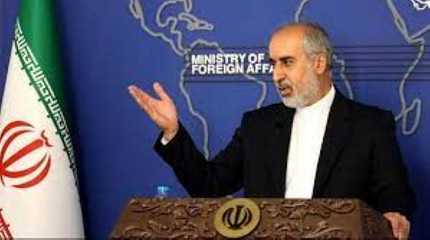
TEHRAN, Sept. 8 (Xinhua) -- Iranian Foreign Ministry Spokesman Nasser Kanaani has called on members of the Gulf Cooperation Council (GCC) to adopt a practical approach toward Iran, instead of making "unreal" claims, so as to prepare the ground for improving and deepening intra-regional relations.
He made the remarks in a statement released by his ministry on Friday, reacting to Iran-related claims in a communique at the end of the 157th Session of GCC Ministerial Council in the Saudi capital of Riyadh on Thursday.
Kanaani stressed that all sides should protect the "positive atmosphere" pervading the regional relations, highlighting the necessity to contribute to the promotion of synergy and convergence in the region in line with safeguarding the regional nations' common interests.
Turning to the GCC statement's claims about Iran's nuclear program, he said, "Iran will continue, in a constructive way, proceeding with its peaceful nuclear program and cooperation with the International Atomic Energy Agency (IAEA) under the Non-Proliferation Treaty and the safeguards agreements and will not be impacted by political interferences and pressures and propaganda."
In its statement, the GCC Ministerial Council stressed the importance of "Iran's commitment to not exceeding the rate of uranium enrichment required for peaceful uses, and fulfilling its obligations and fully cooperating with the IAEA."
In response to the GCC's affirmation that the Al-Durra gas field, known as Arash in Iran, solely belongs to Saudi Arabia and Kuwait, Kanaani said that based on its negotiations with Kuwait, Iran has stressed the importance of "friendly and constructive cooperation" in the area of energy resources, including those in the Arash field.
The two countries and Iran have a long-lasting dispute over the ownership of the offshore Al-Durra gas field. Saudi Arabia and Kuwait signed an agreement on jointly developing the gas field in March last year. Iran denounced the agreement as "illegal," saying it ran contrary to what had been previously negotiated.
Iran and Kuwait have held talks for many years over their disputed maritime border area, which is rich in natural gas, but failed to map border demarcation and end disputes.




